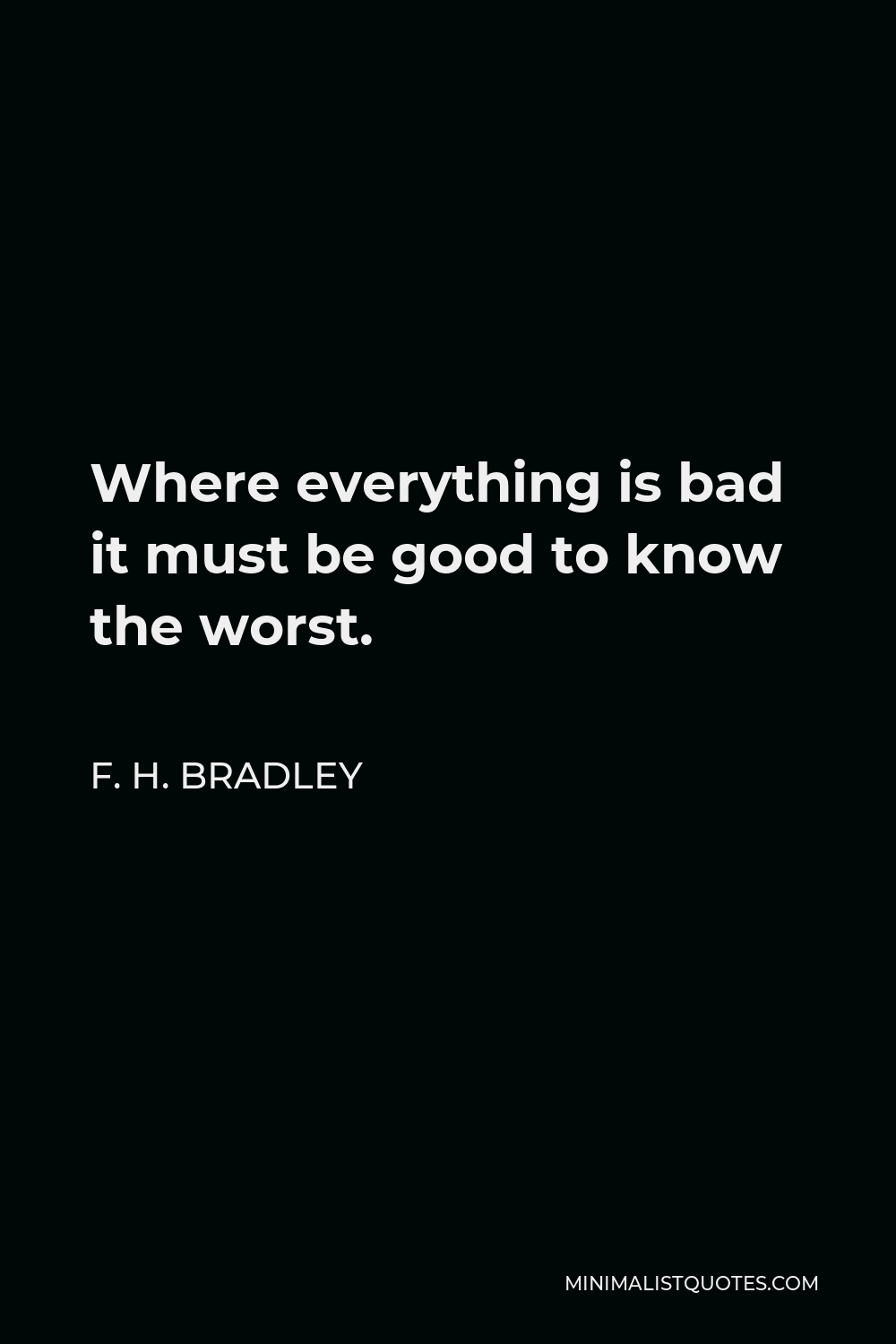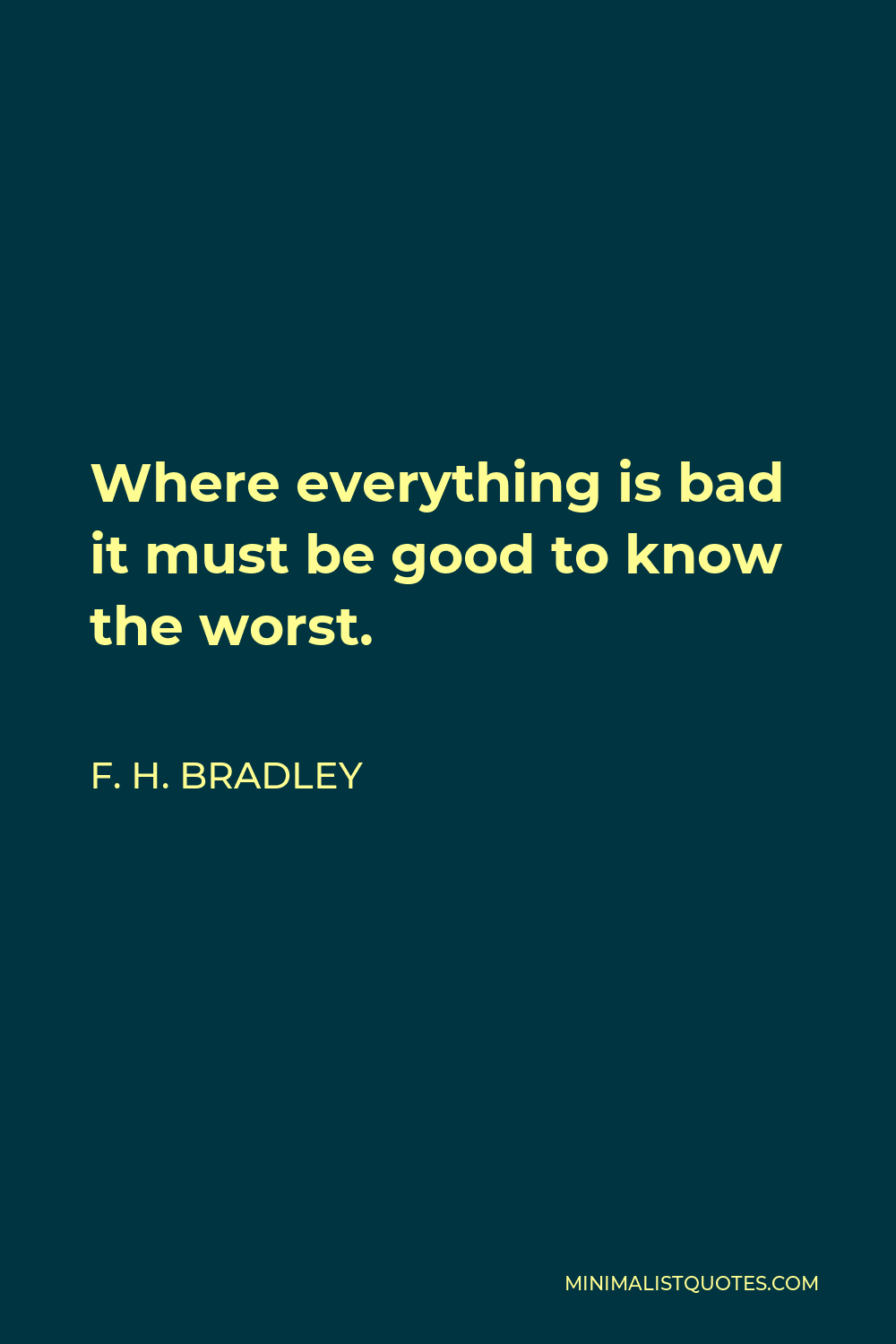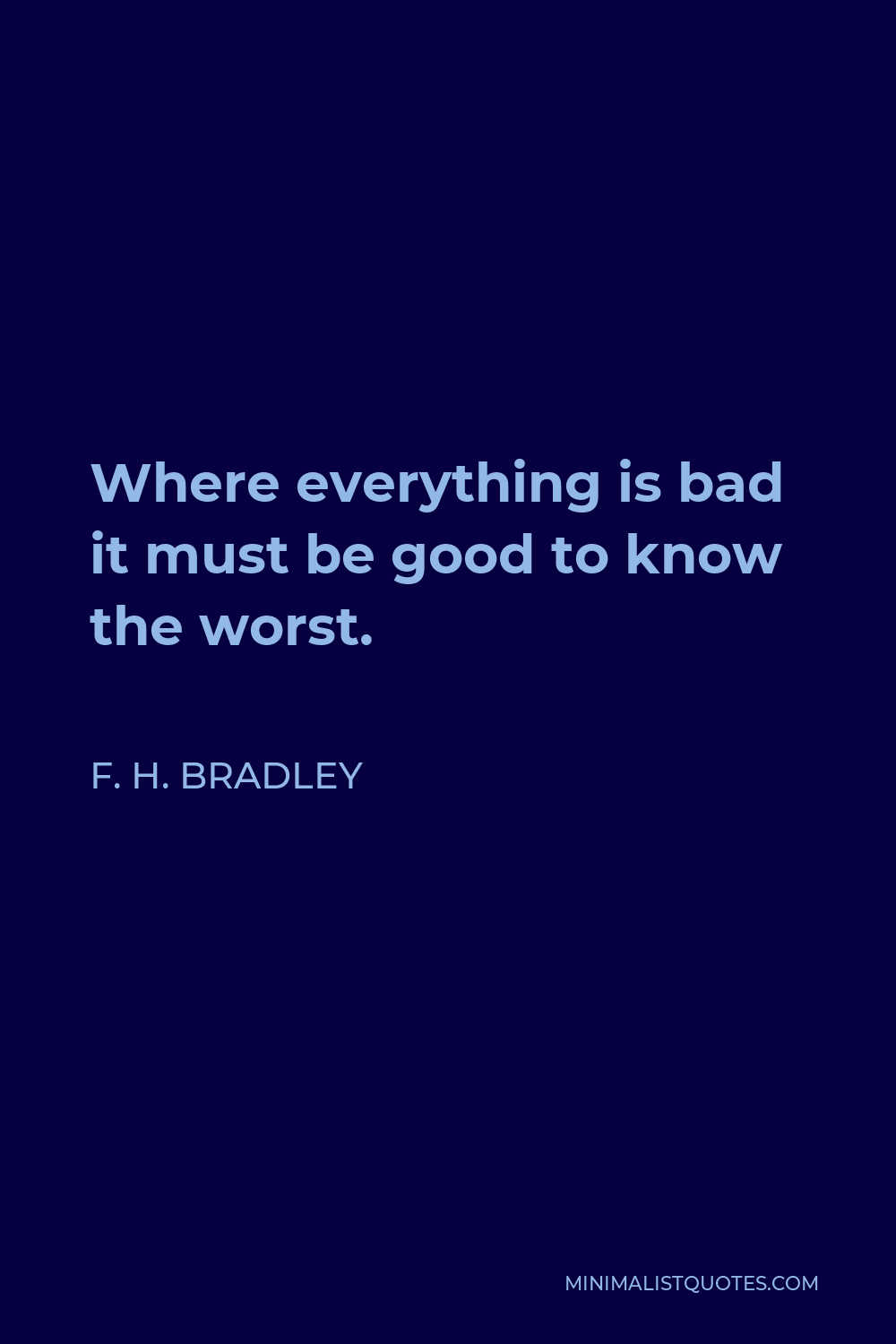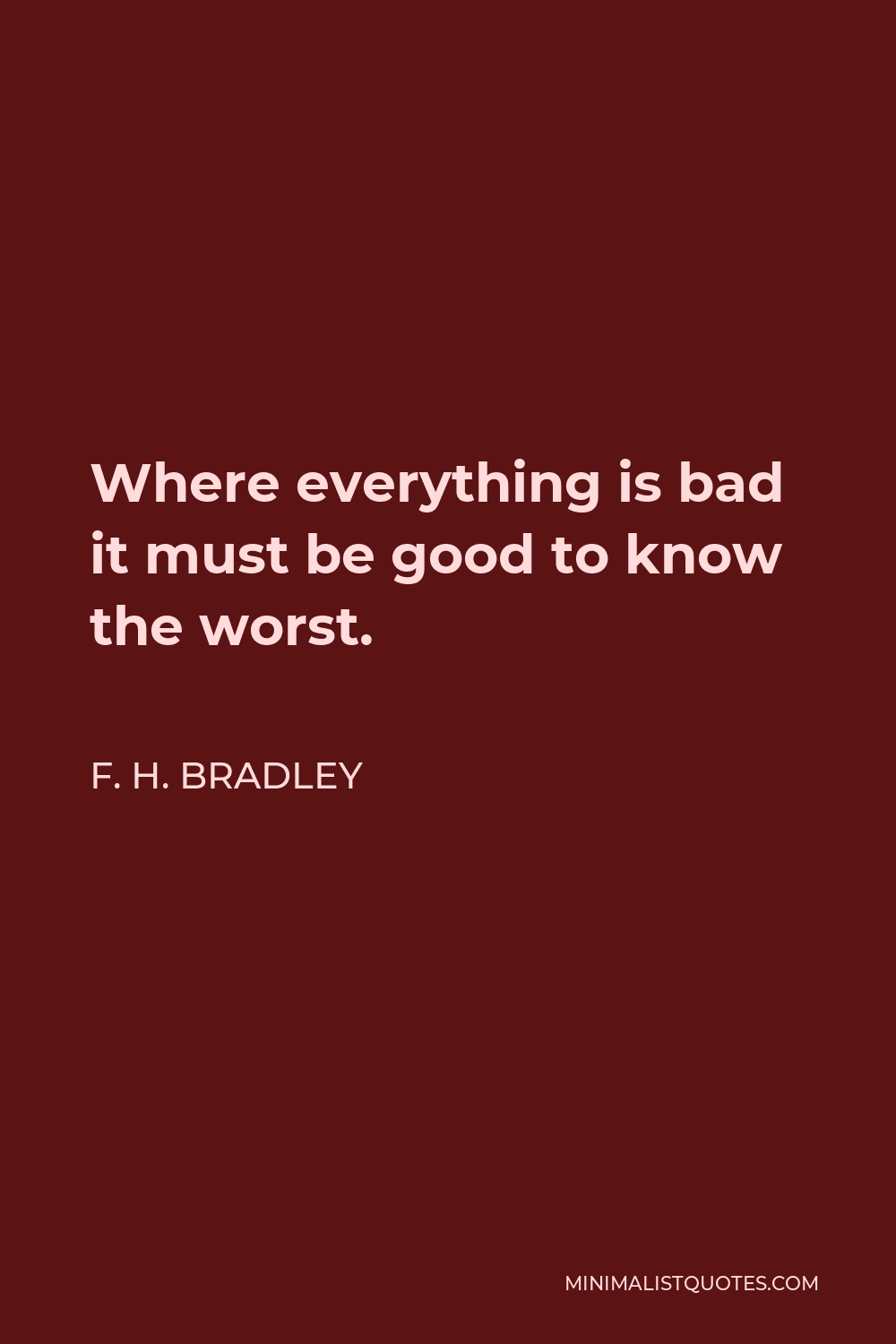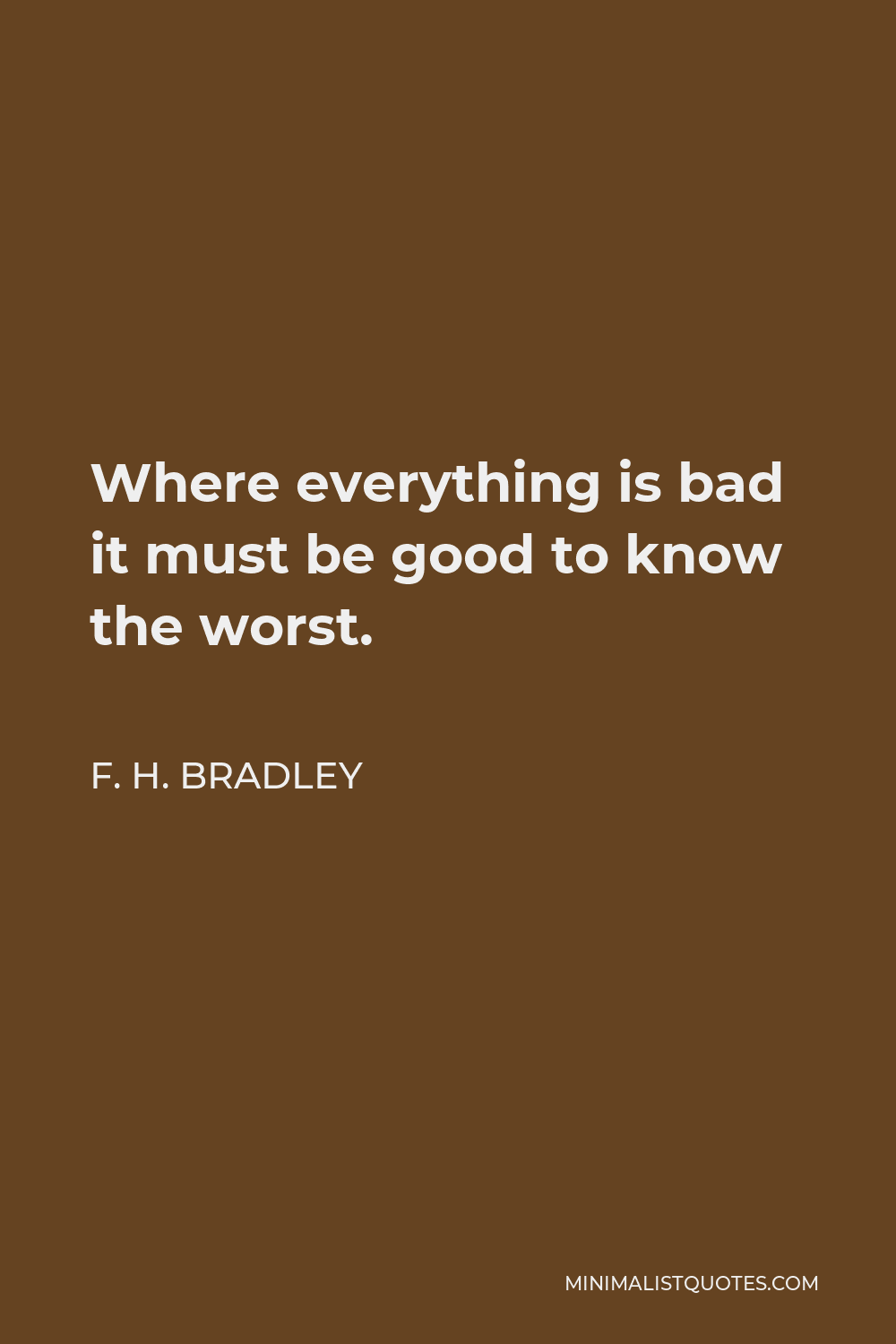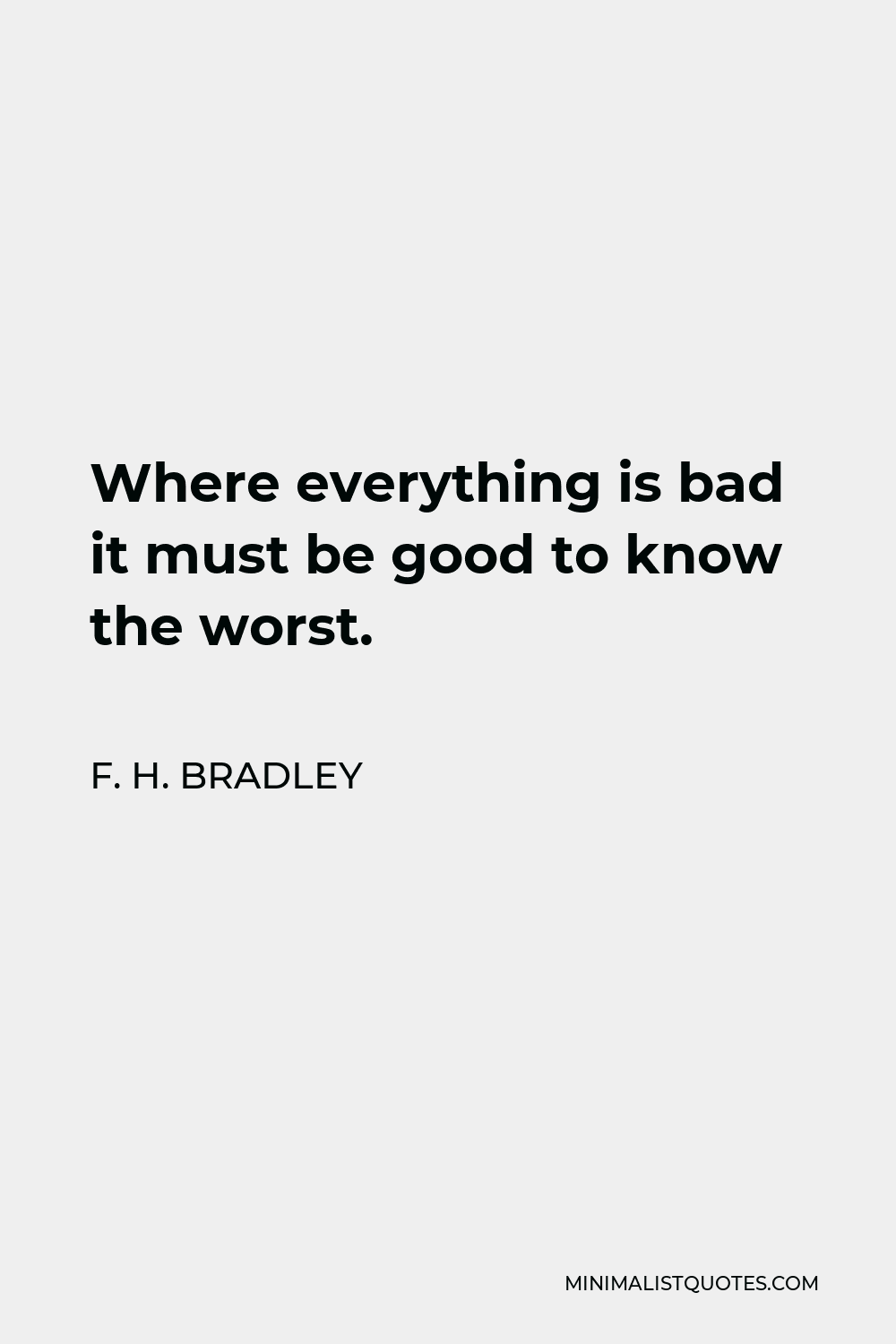It is by a wise economy of nature that those who suffer without change, and whom no one can help, become uninteresting. Yet so it may happen that those who need sympathy the most often attract it the least.
F. H. BRADLEYWhere everything is bad it must be good to know the worst.
More F. H. Bradley Quotes
-





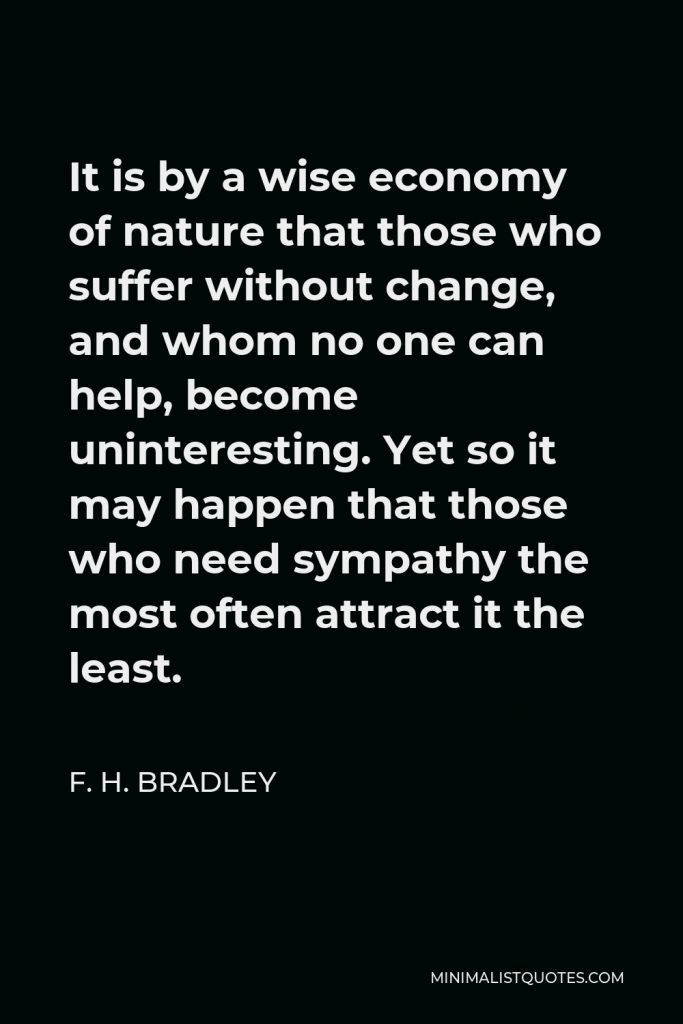

-





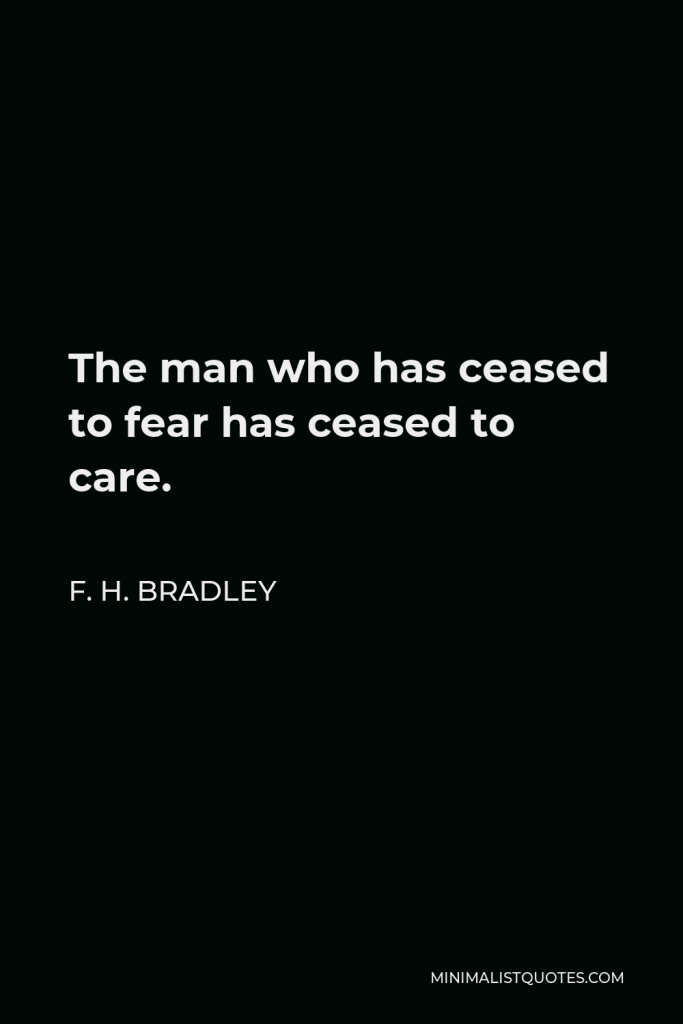

The man who has ceased to fear has ceased to care.
F. H. BRADLEY -





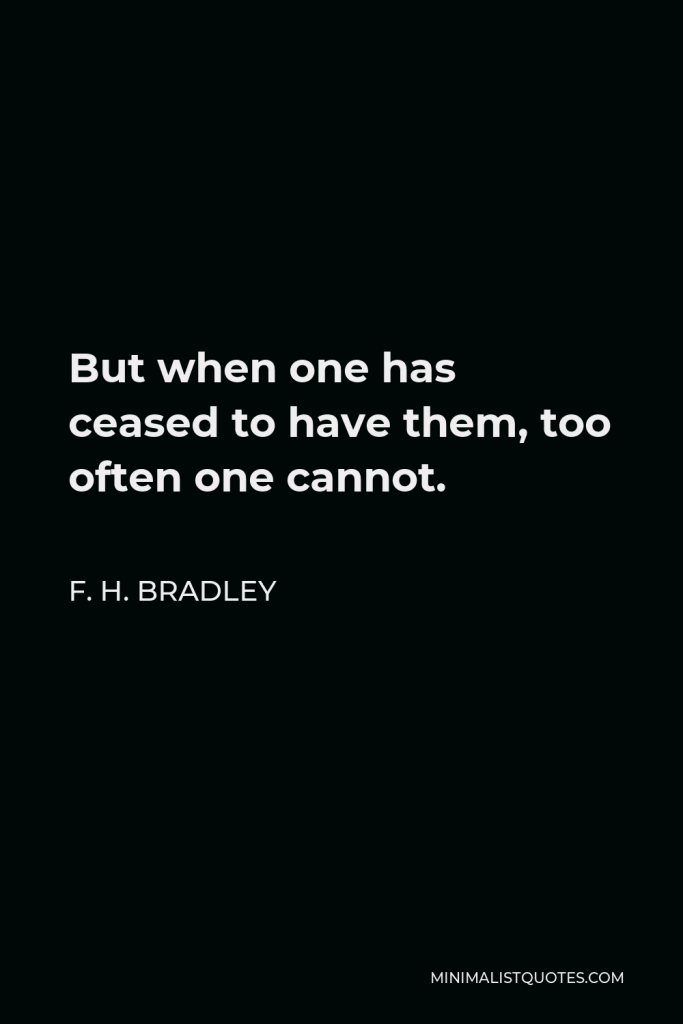

But when one has ceased to have them, too often one cannot.
F. H. BRADLEY -





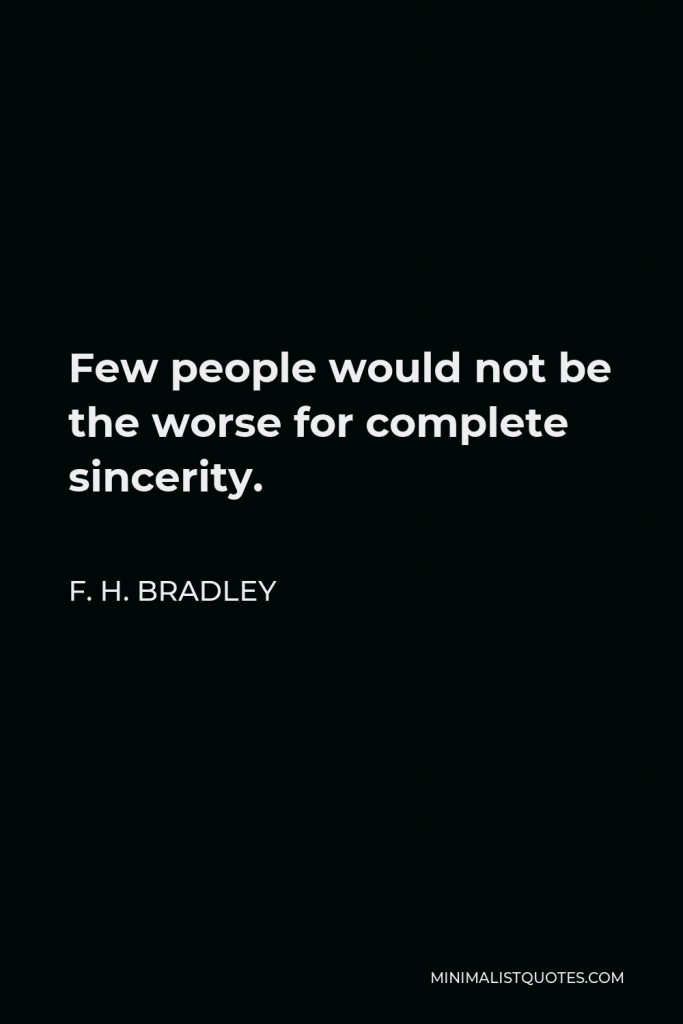

Few people would not be the worse for complete sincerity.
F. H. BRADLEY -





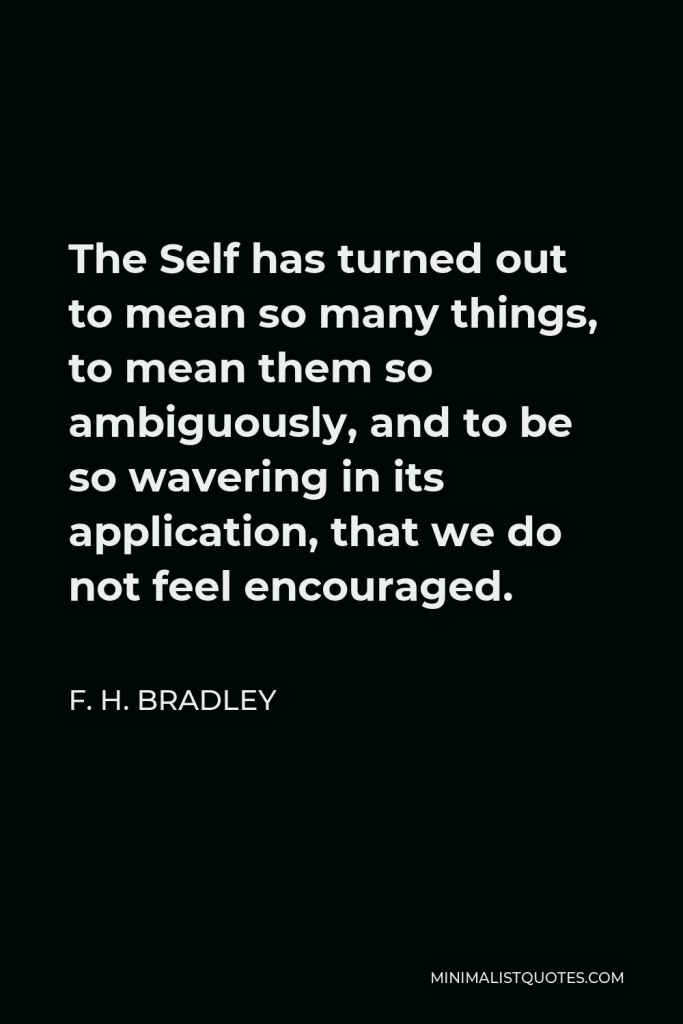

The Self has turned out to mean so many things, to mean them so ambiguously, and to be so wavering in its application, that we do not feel encouraged.
F. H. BRADLEY -





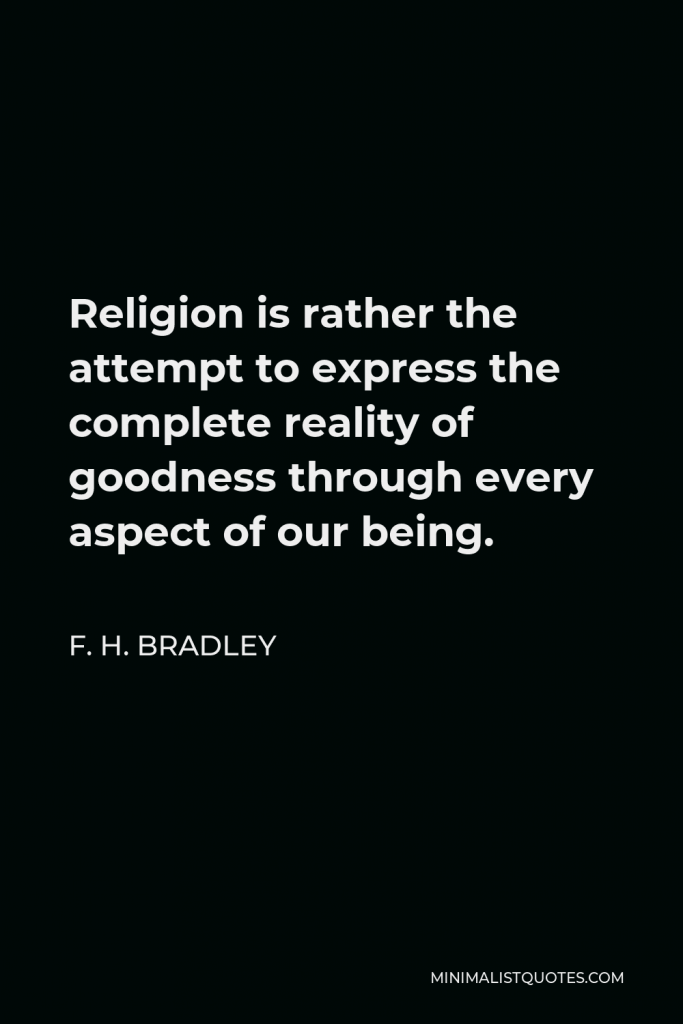

Religion is rather the attempt to express the complete reality of goodness through every aspect of our being.
F. H. BRADLEY -





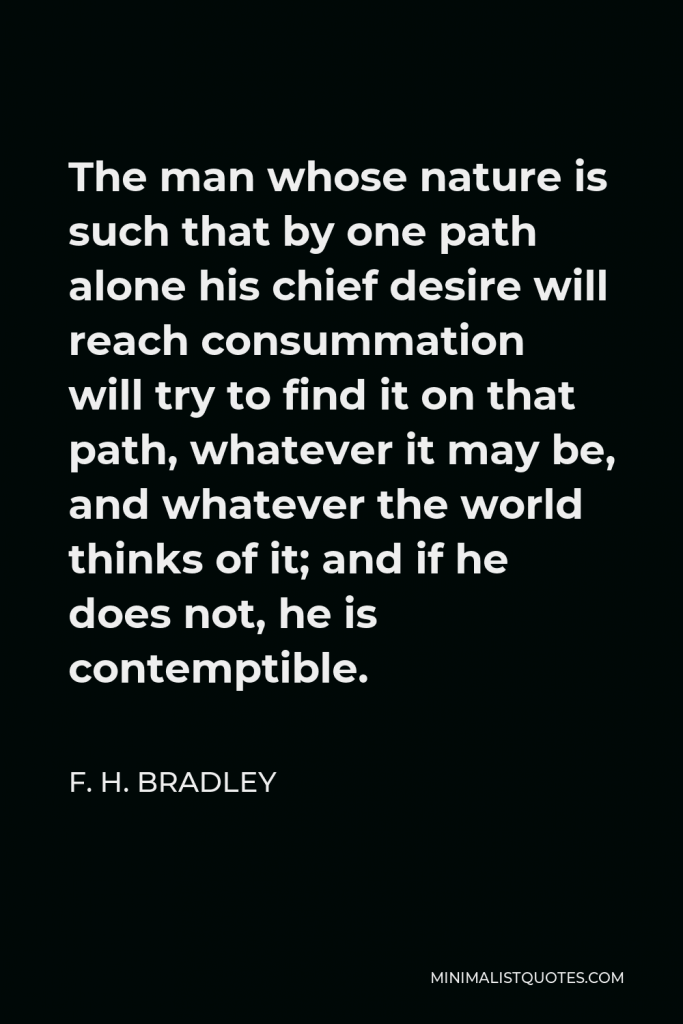

The man whose nature is such that by one path alone his chief desire will reach consummation will try to find it on that path, whatever it may be, and whatever the world thinks of it; and if he does not, he is contemptible.
F. H. BRADLEY -





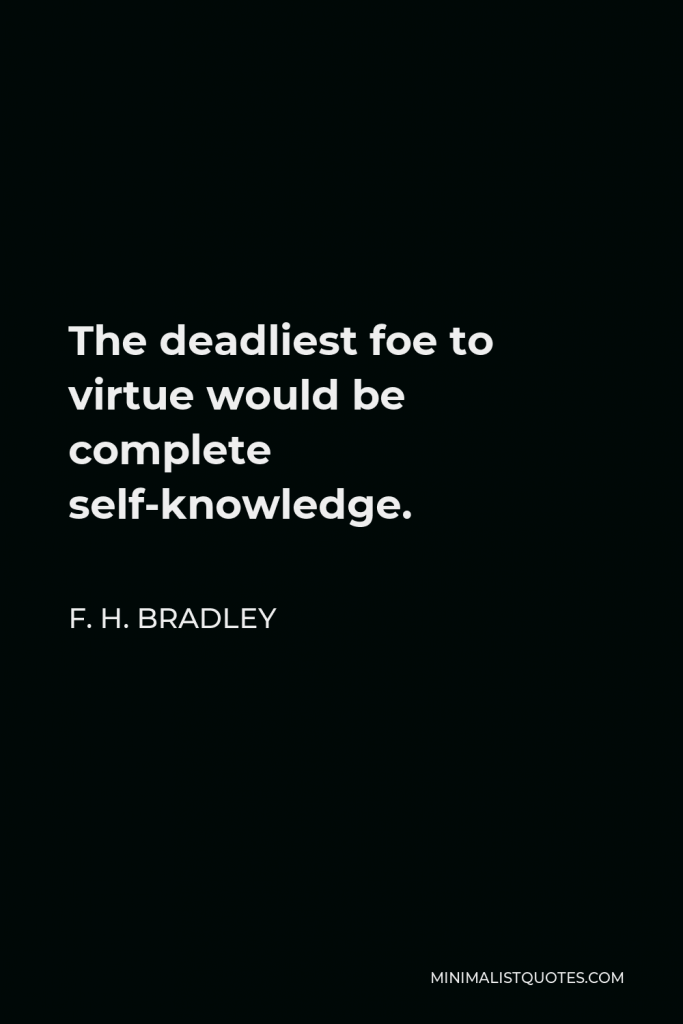

The deadliest foe to virtue would be complete self-knowledge.
F. H. BRADLEY -





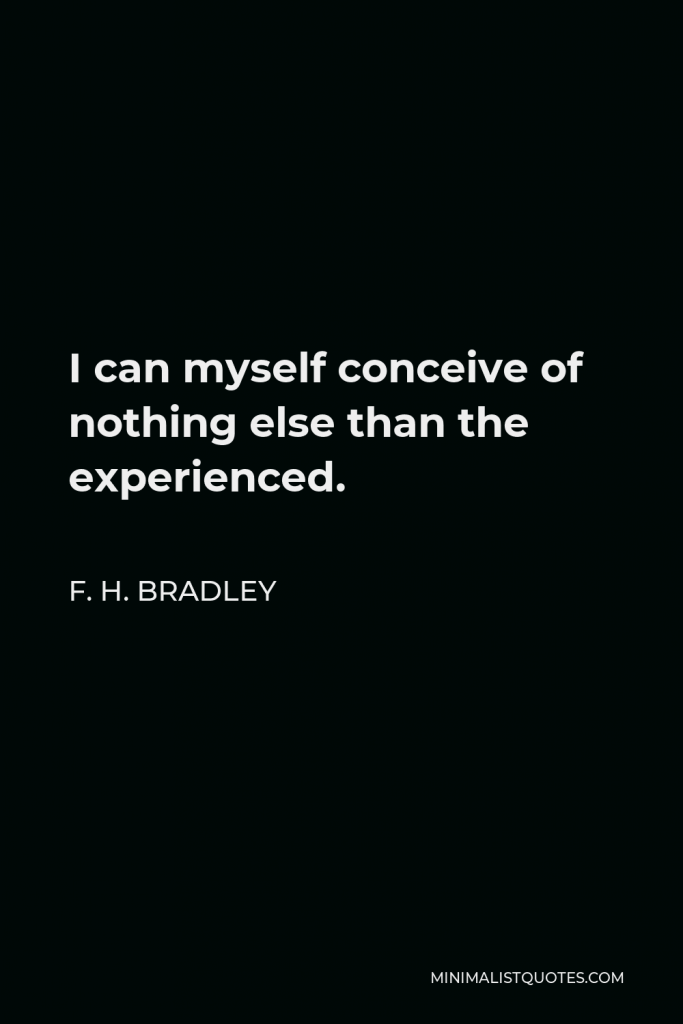

I can myself conceive of nothing else than the experienced.
F. H. BRADLEY -





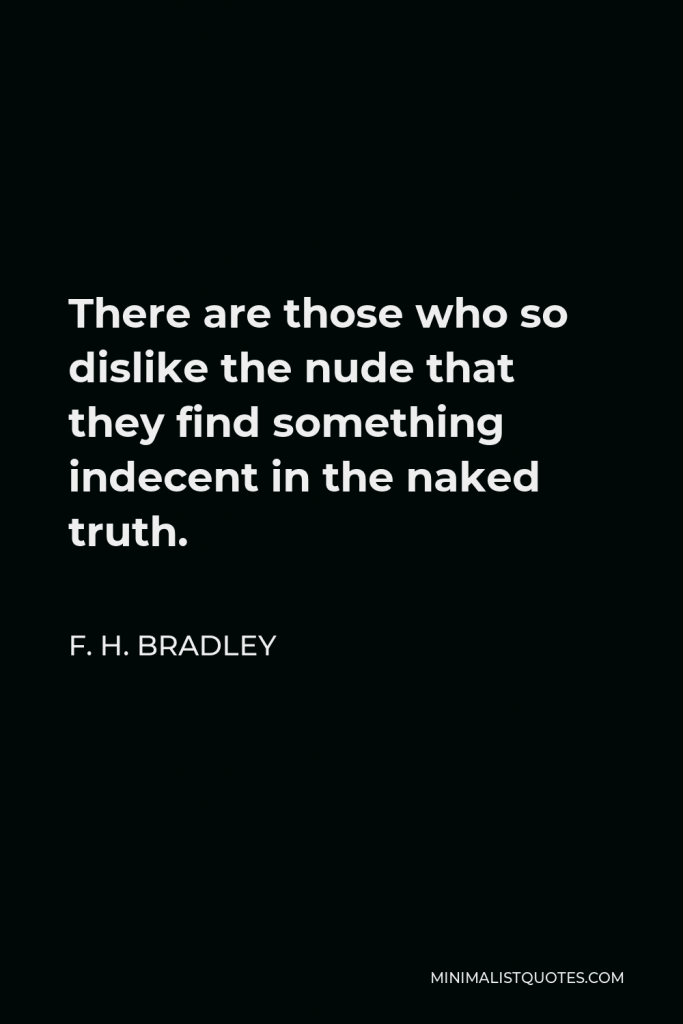

There are those who so dislike the nude that they find something indecent in the naked truth.
F. H. BRADLEY -





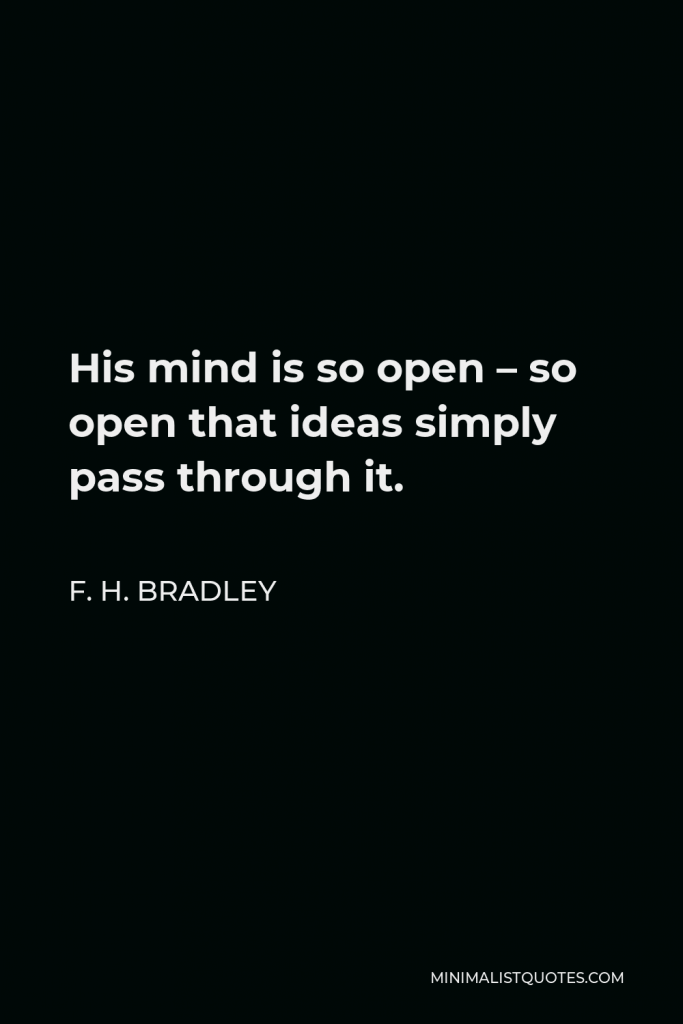

His mind is so open – so open that ideas simply pass through it.
F. H. BRADLEY -





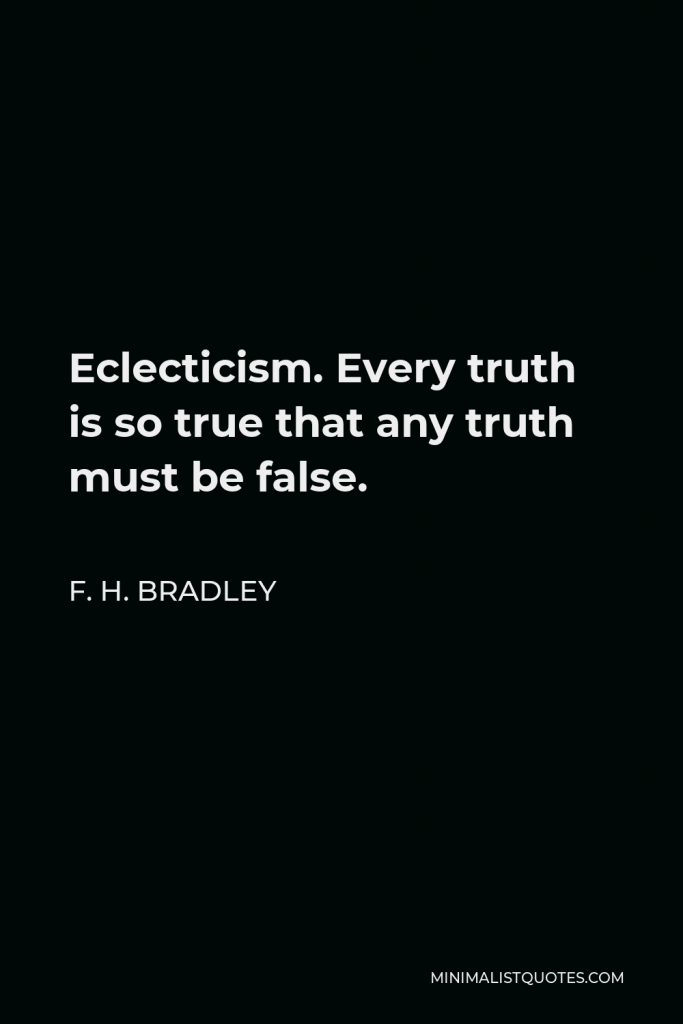

Eclecticism. Every truth is so true that any truth must be false.
F. H. BRADLEY -





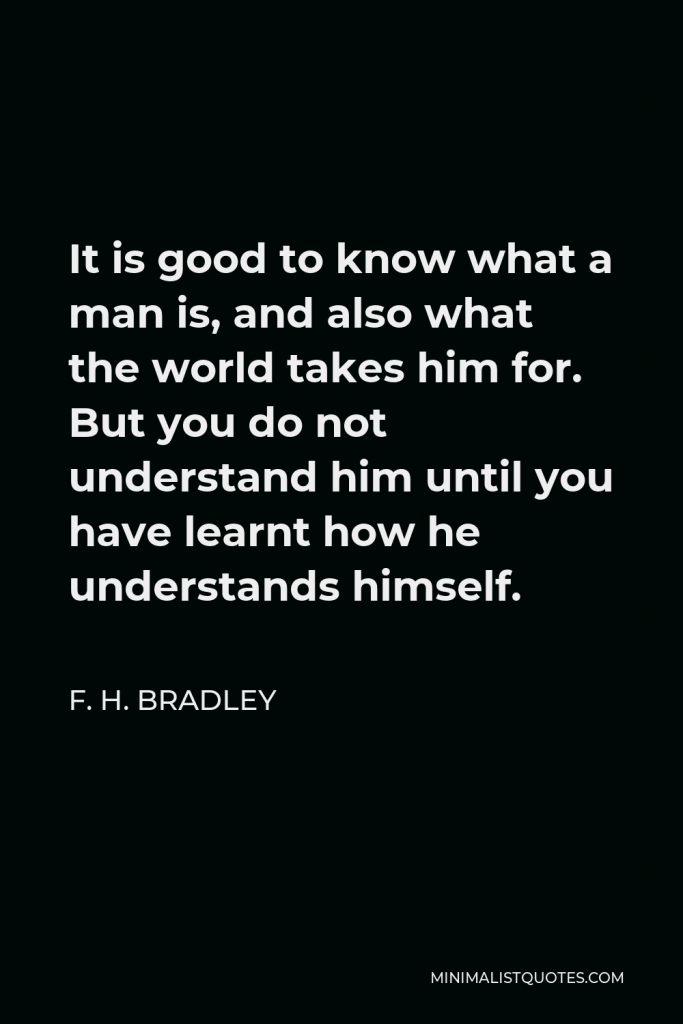

It is good to know what a man is, and also what the world takes him for. But you do not understand him until you have learnt how he understands himself.
F. H. BRADLEY -





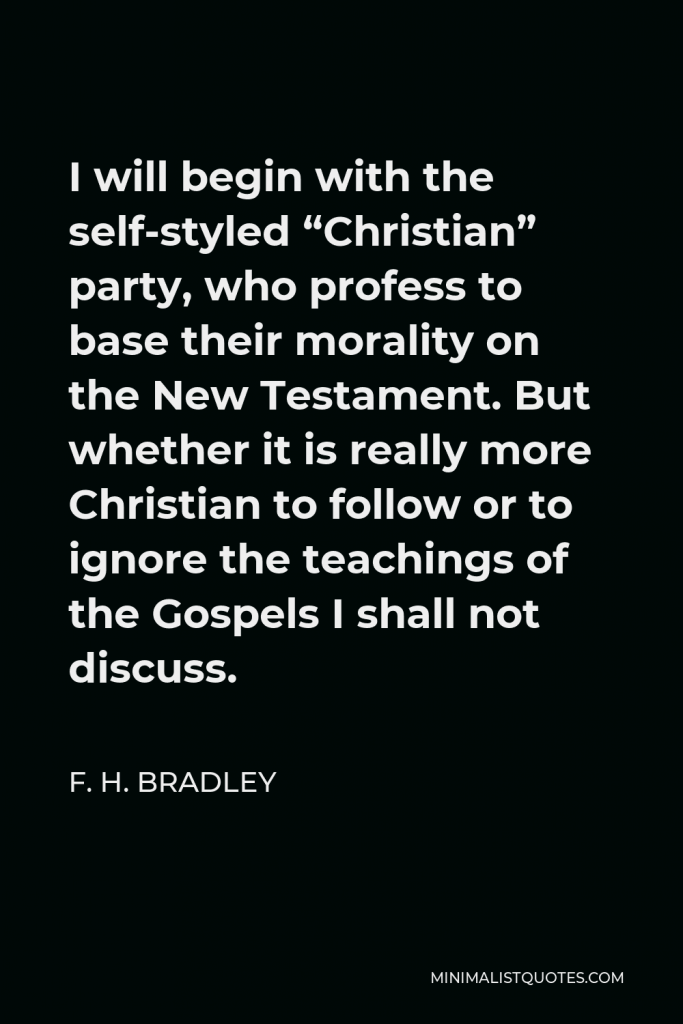

I will begin with the self-styled “Christian” party, who profess to base their morality on the New Testament. But whether it is really more Christian to follow or to ignore the teachings of the Gospels I shall not discuss.
F. H. BRADLEY -







The one self- knowledge worth having is to know one’s own mind.
F. H. BRADLEY -





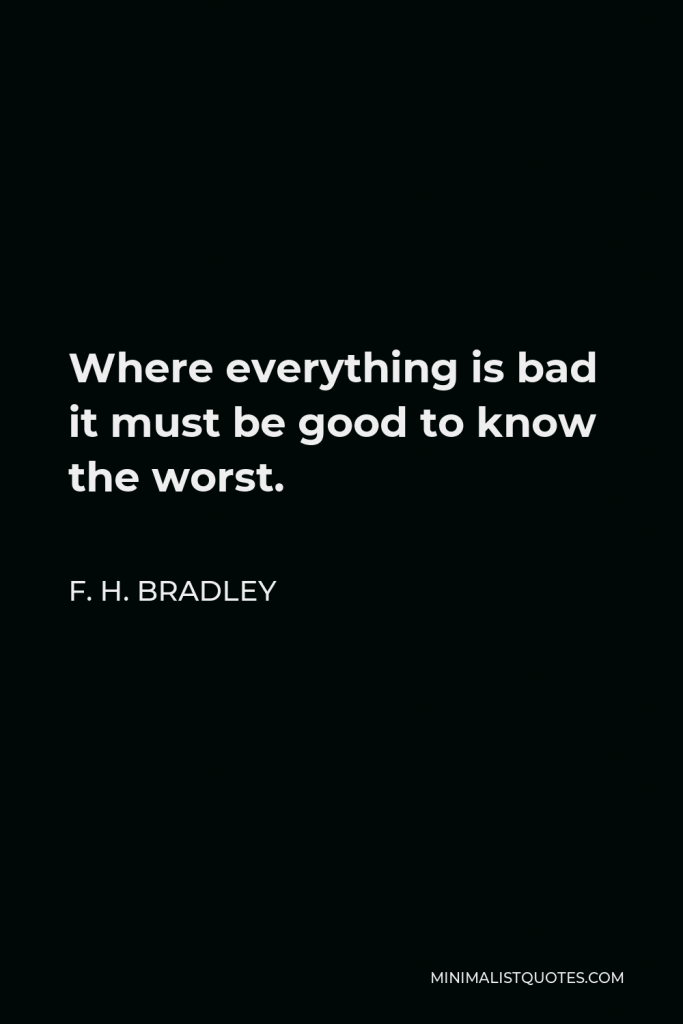

Where everything is bad it must be good to know the worst.
F. H. BRADLEY
